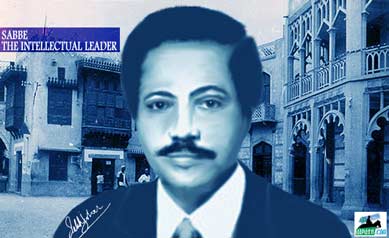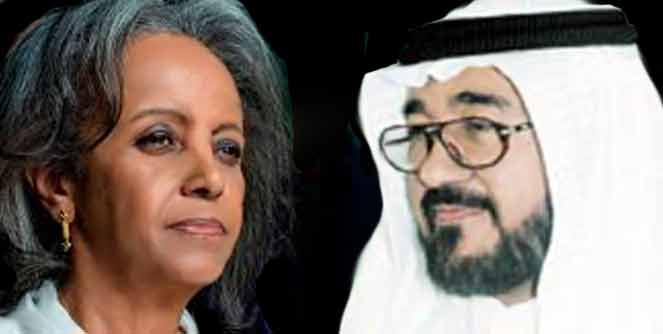LETTER TO PRESIDENT ISAIAS – “Berlin Manifesto”
![]()
LETTER TO PRESIDENT ISAIAS
From Eritrean Professionals And Academics
We, the undersigned, Eritrean academics and professionals, concerned with the predicament facing our country, have agreed to meet in order to make a sober appraisal of our country’s current problems and to suggest appropriate solutions. Fully cognizant of your role in leading our nation to independence and mindful of your continued importance as a national leader, we decided to address this letter for your consideration and action.It is to be remembered that awate.com has reported on August 26, 2000 that a number of Eritrean Intellectuals were preparing to meet to discuss the situation in Eritrea; today, awate publishes a copy of the letter that was sent to President Isaias Afwerki. It is to be noted that awate.com refrained from publishing this letter until it reaches its final destination by this week-end)
Berlin, October 1, 2000
H.E. Isaias Afwerki
President of the State of Eritrea
Asmara, ERITREA
Dear Mr. President:
Your comrades-in-arms trusted you as their leader during the liberation struggle. Your assumption of the office of President is a function of that trust. That trust and the responsibilities that it implies have never been more important than at this crucial moment of history. We, as concerned Eritreans, also feel the weight of this responsibility. It is for this reason that we have come together to voice our concerns, and to exchange views and ideas which we submit as follows.
We would like to begin by expressing our unreserved support for our government in its defense of our country’s sovereignty and territorial integrity, and our admiration for the Eritrean defense forces and the entire Eritrean nation for their role in foiling the Ethiopian aggression. But it is our firm belief that the military threat posed by Ethiopia cannot be dealt with separately from the political and economic challenges that confront us as a new nation. We are aware that the great promise of peaceful reconstruction and development has been shelved by considerations of national survival. However, we are also convinced that we can meet the present danger and future challenges if we unite our efforts and correct our past mistakes. The current crisis presents an opportunity to those ends.
I. A Hard-Won Independence Was Nearly Lost
Mr. President,
The experience of the last two years has been particularly instructive. As a nation we have been devastated by the Ethiopian invasion of our sovereign land. Indeed, the wound inflicted upon us by this war has been a chastening experience. Destroying towns and driving thousands of innocent citizens from their homes and even to foreign lands, the Ethiopian army’s deep penetration inside Eritrea shocked every Eritrean to the core and shook our nation to its very foundation. The very independence and sovereignty for which their sons and daughters paid with their lives and limbs was put at risk. Eritrea was almost destroyed but for the heroic defense forces and the unflinching support of our people.
How did this come to pass? What are the causes of this tragic war? Why and how were the Ethiopians able to penetrate deep into Eritrean territory with such speed and devastating effect? This war has not only cost us dear in life and property and in the suffering of our people. It has also raised grave questions about the conduct of Eritrean affairs both domestic and foreign, and about the nature and style of our leadership in the post-independence period.
Mr. President,
To ask why we have come to this impasse—to inquire into what went wrong—and to reflect upon the cause and conduct of the war, and whether it might have been avoided, is not only legitimate, it is the duty of every citizen. We hope that, in its recent meetings, the Eritrean leadership has done some soul searching and endeavored to provide satisfactory answers to these questions. We, on our part, took it upon ourselves, as concerned citizens who made modest contributions to our national struggle, to express our views on our nation’s current predicament and to offer some proposals as remedies. We hope and trust that you will consider these views in the spirit in which they are given, i.e., on the strength of our patriotic duties and our people’s proud tradition of love of truth and respect for the opinion of others.
The initial impulse that brought us together is manifold. First and foremost, it is the humanitarian crisis facing our people as a result of the war with Ethiopia. But we would be remiss, as concerned citizens, were we to ignore the other burning issues exposed by the current crisis facing our nation—political, social, and economic, as well as crisis in leadership.
II. Humanitarian Crisis and Eritrea’s Image
On the humanitarian question, we express deep concern for the tragic conditions of Eritrean victims of war. We are particularly concerned with the plight of the hundreds of thousands of Eritreans who have been affected by the war and the over 75,000 compatriots who were expelled from Ethiopia, and our citizens who are in refugee camps in the Sudan as well as those still languishing in Ethiopian jails and concentration camps. While we appreciate the Eritrean government’s principled stand on the issue of deportation, we hope and trust that any deportation that may take place in Eritrea, if necessary and legitimate, would adhere to international law, and be in accordance with the previous practice of the Eritrean government.
We support the Eritrean National Assembly’s recent resolution condemning the criminal acts of the Ethiopian government, and we condemn the many egregious acts of violence, vandalism, rape and theft that have been perpetrated, and are being perpetrated, by agents of the said government against innocent Eritreans. In this respect, we pledge to commit our intellectual and financial resources in the ongoing effort to mobilize support. We trust the government to facilitate the timely delivery of humanitarian aid to our people in this time of need and we call upon every citizen to lend a helping hand in this effort.
Turning to another issue of concern, i.e., Eritrea’s image, we wish to assure you, on the basis of close observation, that Eritrea’s image has never been as bad as it is today. Indeed, it has hit rock bottom. There should be no illusions about this. Despite our belief in the rightness of our position, much of the world community, including our fellow Africans, perceive the Eritrean government and its leadership as aggressive and irresponsible. Eritrea’s leadership has been cast, particularly since the start of the war with Ethiopia, as contemptuous of international law and accepted norms of behavior.
Although Eritrea’s worsening image may have been affected by these charges, it is also true that we have alienated our friends and allies, including those who stood by us during the liberation struggle. Even the commendable policy of self-reliance, which many applauded, has now been portrayed as an aspect of arrogance. In our view, the problem is not the policy but its implementation. We know that there is a lot of room for improvement in the matter of implementing policies and in the manner of handling representatives of foreign bodies. Hence, there needs to be a critical reappraisal of policy and praxis.
III. The War and Critical Issues it Brought to Light.
We have followed with great interest and anxiety the unfolding of events since the outbreak of the war with Ethiopia. This tragic war has induced in us a need for critical review of the post-independence developments in Eritrea and particularly in our government’s performance. We recognize the fact that there are notable achievements in the fields of infrastructure, education, and social services. However, we have also noted developments that cause us considerable uneasiness and serious concerns about the future of our country.
Despite these disquieting developments, we remained remarkably silent. The reason for our silence was not due to apathy or lack of interest but rather due to the pervasive phenomenon of self-censorship. This self-censorship was particularly acute during the last two years because we all felt that criticism would give aid and comfort to the enemy who might distort it to suit its purposes. Now it is time to speak and speak plainly. Further silence can only endanger the interest of the country as well as compromise our historic responsibility. We must now say that, in our considered opinion, the government has lagged behind in the development of democratic institutions, including mechanisms for ensuring accountability and transparency. We respectfully submit that this is the most important matter for you to ponder and face squarely in whatever reappraisal of government policy and practice you may be undertaking, as we hope you are.
IV. Reconciliation and National Unity
We are convinced that we reflect a widely held view among Eritreans that there should be national reconciliation. Eritrean military victory and the assumption of sovereign nationhood should have been accompanied by a spirit of reconciliation fired by magnanimity—the same magnanimity shown towards Ethiopians. Wisdom and statesmanship required a call for reconciliation extended to all Eritreans irrespective of belief or political affiliation to join hands in rebuilding a shattered society and economy. It is an opportunity that was lost but that can still be reclaimed. The EPLF (PFDJ) leadership should be willing now to provide political space for groups or individuals. The absence of such space has severely affected the development of civil society and has fostered a feeling of alienation among segments of our society. The constitution, about which we shall say more below, requires such space in no uncertain terms.
V. Collective Leadership and Popular Participation
Mr. President,
Considering the practice of the EPLF during the armed struggle, we believe that one of the grave mistakes that the government has made has been the abandonment of collective leadership. You do not need us to tell you that the practice had created trust and mutual confidence among the leadership and between the leadership and the rank and file. The heroic struggle of Eritrean fighters—their tenacity and resilience in the face of overwhelming odds—would not have been successful without such trust and confidence and the collective leadership based on it.
After independence this practice was abandoned and replaced by one-man leadership. It is also distressing to learn that individuals who were part of the leadership during the struggle have been inexplicably sidelined, in some cases with a loss of their use in this crucial time of crisis. This is inexcusable, and whatever the explanation for this negative development, we feel that it must be rectified. No individual leader, however gifted, can be a substitute for values that come with collective reflection and action in national affairs. The advent of one-man dominance has had the effect of suffocating a variety of ideas from blossoming and denied meaningful popular participation. It has inevitably prevented the growth of democratic institutions. A new nation with very limited and under-developed resources facing enormous challenges in all fields—political, security, economic, social—cannot afford to have a government that depends only on one person.
In fairness, the blame must also be shared by other members of the leadership to the extent that they did not object to the negative practices. They may have put up some feeble complaints, but we have heard of no such protests. So, they too have failed the nation along with you in allowing power to be concentrated in the hands of one man. The absence of any record of protest is also a function of the absence of freedom of expression which has prevented the citizens from exercising their rightful duty of restraining the undue accumulation of power in the presidency. Thus it is no exaggeration to say that, despite some notable progress to its name, the government has failed the nation in some important respect.
VI. Crisis within the Leadership
Mr. President,
It is not a secret that there is a serious contradiction and a major rift among the leadership. We cannot over-emphasize our apprehension of what may ensue. We deem it to be too serious and dangerous to be handled in a confrontational manner. Hence, we appeal to you and the rest of the leadership to handle it carefully, and to resolve all future conflicts within the framework envisaged by the constitution. Any further delay in resolving the crisis within the leadership will have grave consequences for our nation. We cannot minimize the potential weakness that this crisis may create if not handled properly, considering the opportunity that it can give the enemy to exploit our internal contradictions.
VII. The Role of PFDJ in Politics and the Economy
Mr. President,
We are particularly concerned about the parallel institutions of the PFDJ and the government. We see lack of clarity in functions. We see duplication and a bewildering variety of tasks and actors. We feel this involves confusion and waste of resources which a small nation with scarce resources can ill afford. We would like to see a clear definition of what the PFDJ is. We would also like to see it confined to party activities and refrain from activities that are the proper province of government. The PFDJ’s economic activities are a cause for concern and an abuse of the goodwill and trust of the people. While it cannot be denied that PFDJ/government business activities have solved many problems by providing timely and affordable commodities to our people, this cannot be said anymore. In point of fact, PFDJ/government economic activities are contrary to the government’s policy of “a dynamic, private sector-led …market economy…and a commitment to private sector development…” More to the point, PFDJ companies have no clear mechanism of accountability and transparency. At least, there is none that is known to the public. We believe that this is a recipe for disaster and for fostering corruption, cronyism, and favoritism. This climate discourages genuine and credible investors. We strongly believe that the current business practices of the PFDJ will act as corrosive agent of the political, social, and economic life of the nation. In any case, and in view of the record of the PFDJ, it is important to seriously reassess the whole question of a party running business.
VIII. Implementation of the Constitution
Eritrea has a constitution—the most sacred document of the nation. This constitution represents the consummation of the Eritrean struggle which was fought for self-determination, democracy, social justice and the rule of law. It was crafted with the participation of the people and was ratified by their representatives. It is the people’s document and no one has the right to suspend it or otherwise tamper with it. You were right when you said in your recent interview that the time for the implementation of the constitution was yesterday. [Iwanu t’mali’yu neiru.] We agree, but we say: better late than never.
The constitution must be implemented immediately. A ratified constitution means that it is already in effect and that the Eritrean people should be enjoying their constitutional rights. We are dismayed to witness the operation of institutions that are clearly and flagrantly in violation of the spirit and letter of the constitution. We are astounded to hear of practices that are contrary to the provisions of the constitution continue today. We, therefore, solemnly request that you take the necessary steps to ensure the full and immediate implementation of our constitution.
As a sign of goodwill and seriousness of intent, again, we would like you to abolish the “special court” which is undermining the rule of law and creating disaffection among a segment of our population. People have been languishing in jail for many years without being formally charged of any crime, let alone sentenced. They have been waiting to appear before the special court. This stands in stark opposition to the letter and spirit of the constitution and is an affront to elementary notions of justice. We urge you to set these people free immediately or have them brought before a court of law.
Another disturbing practice that is contrary to the spirit of the rule of law is the resort to arbitrary practices of freezing civil servants in what is popularly known as midiskal. This harsh and unfair practice, presumably intended to instill fear, seems to have been self-defeating. If the intent was to correct or rehabilitate the victim, or otherwise bring something good to government or the nation, it has not had that effect. The overall effect of the practice has been disillusionment, confusion and waste of valuable resources.
Conclusion
Mr. President,
Eritrea is at a crossroad. A portion of our land is under foreign occupation. A significant proportion of our population is displaced. It is time for a serious soul searching by all concerned, starting from the leadership. Let the leadership and the entire nation conduct an open debate. People should not be denied this right which they have paid for with their blood, sweat and tears. We urge you most sincerely to seize this moment of crisis and turn it into an opportunity to reclaim your hard-earned reputation as a leader. You owe it to yourself and to the nation and to wonderful people that has followed you through thick and thin.
On our side, we will spare no effort to help secure Eritrea’s territorial integrity and national sovereignty. At the same time, we will endeavor to promote a culture of openness, tolerance, accountability and rule of law. To these ends, we intend to broaden our base by convening a larger meeting which will consider your response to this letter. The idea is to begin and institutionalize a government/civil society dialogue on a continuing basis as a critical part of a healthy development of our future.
Respectfully yours,
Araya Debessay
Assefaw Tekeste
Bereket Habte Selassie
Dawit Mesfin
Haile Debas
Kassahun Checole
Kaled A. Beshir
Lula Ghebreyesus
Miriam M. Omar
Mohamed Kheir Omar
Mussie Misghina
Paulos Tesfagiorgis
Reesom Haile
Contact person in Asmara—Paulos Tesfagiorgis




Awate Forum